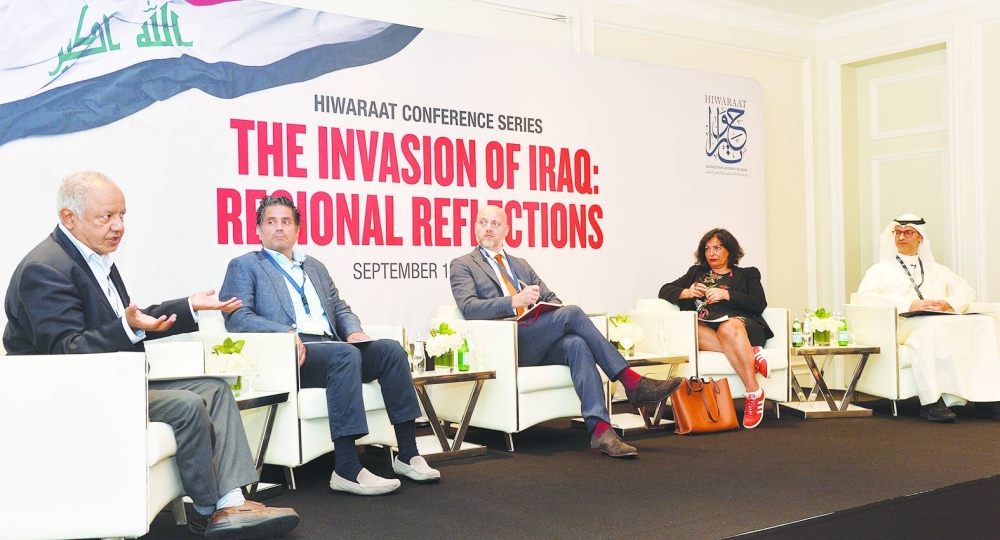A panel discussion on September 15 at the ongoing 'The Invasion of Iraq: Regional Reflections' Hiwaraat conference series shed light on the war’s impact on Qatar and Kuwait, particularly in terms of governance, foreign policy, and economic development.
Imad Mansour from the Doha Institute for Graduate Studies said that while the invasion was a tragic event in the region’s history, it inadvertently eliminated threats faced by Qatar.
He highlighted a structural change that enabled regional states to pursue more assertive policies globally – a shift allowing Qatar to experience unprecedented economic growth. This traced back to the 1970s and culminated in the 1990s when the country's diplomatic engagement with Iran intensified.
“In the 70s and the 80s, Qatar faced a series of restrictions so state building was going on, there was less resources. The war between Iran and Iraq in the 80s limited what really Qatar and other states in the region could do because their main emphasis then was on securing themselves from the outside.
“In the 90s... that war which decimated Iraq, was combined with changes in the technology to produce and export LNG (liquefied natural gas), which meant more resources for Qatar,” Mansour told Gulf Times on the sidelines of the discussion.
Speaking at the session, titled “The View from the Peninsula: Kuwait and Qatar”, Laleh Khalili from Exeter University underlined the direct and indirect effects of the Iraq invasion on the economies of both Kuwait and Qatar. She pointed out that the uncertainties arising from military invasions have significant implications for oil markets, leading to fluctuations in prices and subsequently impacting GDPs.
She also stressed the substantial influence of US military bases on both countries. These bases, she noted, serve as economic hubs, hosting various businesses and generating a “little American town” effect, contributing significantly to the local economies.
Additionally, Khalili noted that the logistical and transport sectors have experienced substantial growth – written in her book (launched in 2020) titled ‘The Sinews of War and Trade: Shipping and Capitalism in the Arabian Peninsula’, which further stimulated economic development.
“The indirect effect of course is that because of the uncertainties usually that such a military invasion creates, the oil markets, particularly the Futures oil market, react quite strongly, and those uncertainties and unpredictability resulting shift in the price of oil which we see again reflected in the GDPs.
Mansour and Khalili were joined by other panelists, including David Roberts, chair of King’s College London; Ghanim Alnajjar and Bader Al-Saif, both from Kuwait University.
The conference, organised by Georgetown University in Qatar (GU-Q), aims to provide a comprehensive overview of the impact of the Iraq invasion over the past two decades, It brought together experts from the US, the Middle East, and other regions.
According to GU-Q, the discussions include critical themes such as the emergence of Da’esh, post-invasion Iraq's women, global governance, climate change, and natural resource management.
The insights shared at the conference, which concludes on Saturday highlight the complex interplay of geopolitical events and regional economies, illustrating how unforeseen consequences can lead to unexpected opportunities for growth and development.

Imad Mansour (2nd left), along with other panellists at the discussion on Friday. PICTURE: Shaji Kayamkulam.

